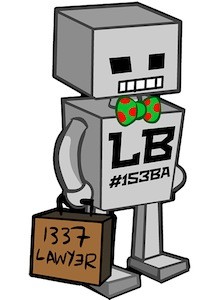Can We Compete With Robots?
There’s a major public issue brewing that sooner or later will explode into common debate. You could probably trace its beginning back a few years ago when entrepreneur and technologist Martin Ford wrote a book called “The Lights in the Tunnel: Automation, Accelerating Technology and the Economy of the Future”. His new book is an extension of his thinking called “The Rise of the Robots” reviewed here in the New York Times by Barbara Ehrenreich, another sharp thinker about the nature of work.
With his first book, Ford raised the issue that we may be facing a new kind of automation. Previous bouts of automation have eliminated jobs, but always created new jobs, and for years most economists assumed that would be true with computers and robots. But the conversation has started to shift toward the notion that “this time is different.” Different in two ways: 1) this will impact white collar workers as well as those who work with their hands and 2) it is not at all clear where the new middle-class jobs will come from.
 I see the trend everywhere among my clients–from so-called e-discovery software that is eliminating that common task for young lawyers, to programmatic buying tools in advertising agencies that replace traditional media buyers. And in her review, Ehrenreich points out that an increasing number of financial and sports stories are written by robots–and then does a pretty good job of suggesting how someday smart software could be used to replace book reviewers.
I see the trend everywhere among my clients–from so-called e-discovery software that is eliminating that common task for young lawyers, to programmatic buying tools in advertising agencies that replace traditional media buyers. And in her review, Ehrenreich points out that an increasing number of financial and sports stories are written by robots–and then does a pretty good job of suggesting how someday smart software could be used to replace book reviewers.
And recently I was introduced to the concept of Robotic Process Automation, which effectively automates many routine clerical tasks, without requiring fundamental changes to the company’s underlying software. A lot of clerical tasks involve, say, checking one number against another to make sure it was properly recorded, or moving data from one program to another program that isn’t fully compatible.
That’s the kind of work that is often outsourced to India. Now, RPA advocates suggest that with these new efficiencies it may be possible to bring those jobs home to the United States. But that would still mean that say, a thousand jobs that were lost in the US a decade ago might return to our shores–but this time only employing fewer than one hundred.
Ford points out that a country that consists of a wealthy elite and everyone else performing minimum wage jobs is not a healthy economy. Indeed, that’s generally agreed upon by both liberal and conservative economists. We need the kind of strong middle class that existed in the United States post-WWII, created in part by the unionization of factory workers. That’s the rationale behind the movement across the country right now to raise the wages of service workers to create a new middle class. One wage goal that is often suggested is $15 an hour.
Ironically, I recently saw a business plan for a sophisticated fast food robot that would easily replace several workers. What struck me most was a graph in the plan that showed how the machine became a profitable investment when the wages of workers approached….$15 an hour.
In”The Rise of the Robots” Ford makes an obvious but controversial suggestion: a guaranteed annual income. If robots and smart software are creating additional wealth, but that’s not being distributed beyond the owners of the machines, then the notion of income redistribution raises its head. And in a world in which jobs are created and destroyed quickly, and workforce flexibility is important, then a guaranteed annual income would give people the freedom to take some risks, as well as participate in growing but insecure opportunities like Uber or Task Rabbit.
Like climate change, job loss through automation is one of those issues that creeps up very slowly, and is also highly susceptible to political manipulation. We will hear much, much more on this topic long before any solutions come into sight.


